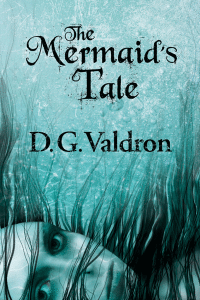Thoughts on submissions
I used to think of myself as a dream-maker, someone who would champion unknown Canadian authors and give them voice. In some ways I still hold that belief, live by it. But I’ve also come to understand an inherent laziness in so many fellow writers, indeed creators. “Laziness?” you cry. Yes. Laziness.
What do I mean by that? How could I dare be so cruel? (insert shrug here) It’s not with a cavalier attitude or intent to eviscerate that I write that. What has nurtured that belief is experience. Allow me to illustrate.
Basic language skills
There seems to be an inherent assumption that an editor is going to fix all your spelling and grammar errors. While that is essentially true, there is also the truth that if you want me to read your manuscript, you best put your best work forward. Think of this as a date. Are you going to show up in dirty clothes, unwashed, reeking of your last workout? Is that moss in your hair? A boogie hanging from your nose? What? You’d like a hug? Um, no, because I think I saw something crawling up your sleeve, and I prefer eau du soap, not eau du pong.
That’s how I feel when I receive a manuscript with a consistency of not only incorrect spelling, or spelling outside of our submission guidelines (Canadian), but an essential and willful disregard for things like the proper capitalization of proper nouns versus objective nouns, and knowing the difference. Of an understanding of typesetting conventions which employ a single space after a sentence stop, not a double. (If you don’t know why, look it up.) Of an understanding of when and how to use quotation marks, what type of quotation marks. How and when to use, and not to use, ellipses, parentheses, em-dashes. How to construct a paragraph in which dialogue and action both occur.
That opening sentence
Throughout the years there has been considerable discussion regarding a good opening line or paragraph.
 Take a look at the opening paragraph of Michael Crummey’s stunning, award-winning novel, Sweetland:
Take a look at the opening paragraph of Michael Crummey’s stunning, award-winning novel, Sweetland:
He heard them before he saw them. Voices in the fog, so indistinct he thought they might be imaginary. An auditory hallucination, the mind trying to compensate for a sensory lack. The way a solitary man will start talking to furniture, left alone long enough.
Right from the outset we know the main protagonist is male, living in a place which very likely receives a considerable amount of fog given the character’s seeming familiarity with the properties of fog. There is also foreshadowing in the last line, of a man becoming solitary, of him perhaps losing his grasp of reality, of loneliness brought about by long isolation. And there’s an inference he is familiar with being a solitary man, because he has knowledge of what might happen.
Wow. That’s a lot packed into one short paragraph.
But there’s more. We know there are people out there, which raises the question of whether he’s going to meet these people, if they’re going to come to him, or he to them. And by doing this Crummy sets up tension.
Yet I have seen, over the years, a plethora of manuscripts come across my desk which would have taken those basic elements and begun thus:
It was foggy, dense and grey. Moses could hear voices out there, likely islanders come to browbeat him into accepting the government’s offer to get the hell off the island.
 You want fantasy, not CanLit? Take a look at the opening paragraph from D.G. Valdron’s The Mermaid’s Tale:
You want fantasy, not CanLit? Take a look at the opening paragraph from D.G. Valdron’s The Mermaid’s Tale:
It was a rough assembly of lumber, called the Mermaids’ Dock, that reached into the shallow waters near the Selk domain. The water wasn’t deep enough for most large craft this late in the season, so the dock had fallen into disuse. I could hear the rotting timbers creak under my feet as I went out to the end and sat down.
We know right away it’s likely autumn because it’s late in the season. It is inferred this novel is likely going to deal with decay, given the mood and description of rotting timber and ill-maintained infrastructure. And we know the speaker is there on the dock for more than a brief moment, because they’ve sat down, and it is also inferred the character is accustomed to decay because they show no trepidation about both walking on such a structure, and sitting.
Again, that’s a lot.
Yet another writer might have chosen to pen something thus:
I walked out across the rotting dock and sat down, looking out over the shallow waters near the Selk domain.
Or I’ll give you a reverse example I used during my tenure as writer-in-residence at the Neustadt Public Library this past summer.
It was a dark and stormy night.
Which becomes:
She stood there shivering, rain sheeting down her face, wondering not for the first time what she was doing out on such a night, in such a storm, with the wind howling like her own thoughts.
Now the weather is part of the character. There’s tension because she’s shivering. Is it from cold? Is it from fear? Perhaps fear because we are then given the clue she’s distressed as indicated by the phrase: howling like her own thoughts.
So, of those opening paragraphs, which manuscript do you think I’d continue to read?
Don’t expect your publisher to teach you to write
The above is just one example of many tools at a writer’s disposal, and tools you should have in your kit. Don’t expect your publisher to teach you these things. You should write and write and revise and revise until your work is taut and polished and as close to perfect as you can make it.
I’m going to lift a quote from Michael R. Fletcher here, because it’s an absolutely perfect illustration about the mindset every writer needs to employ when revising that first draft:
Writer me: And then he heard the thing, WITH HIS EARS!!!
Editor me: Fucking hell you are useless.
And read. Lots of material. Research material. Authors you admire. Authors you don’t. Figure out what the research means, why you admire an author, why you don’t admire another. Employ critical thinking, and then employ that to your writing. Second guess every damned line you write. Ask yourself: is there a better way to write that scene, illustrate that moment, convey the inner workings of that character, that information? Have I sustained tension throughout that sentence, that passage, that chapter, that novel? Or have I allowed the tension to arrest because I stopped for an information dump, or broken point of view, or, or, or. Be your worst nightmare. Eviscerate. Deconstruct. And then reconstruct.
Or, as Margaret Atwood is wont to say: the waste basket is your friend.
But most of all, do this for yourself. Don’t be lazy and expect a publisher or editor to fix that for you. You can only be brilliant within yourself. No one can make you brilliant. Or, if they do, then the work is no longer yours, but a collaborative effort.